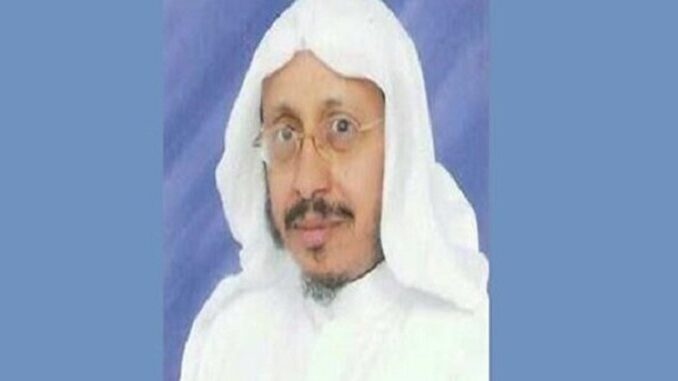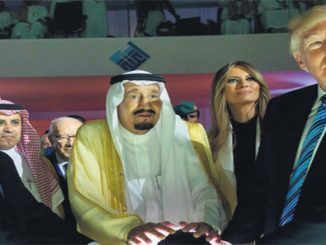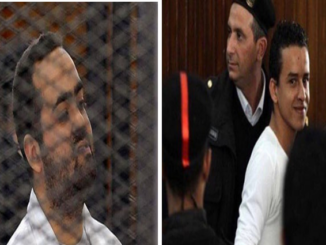
Human rights groups have announced that Dr. Musa Al-Qarni has died in Saudi prisons, after spending 14 years of arbitrary arrest and imprisonment.
ALQST, a London-based human rights organization that documents and promotes human rights in Saudi Arabia, blamed Saudi authorities for the death of Musa al-Qarni, a former university professor of Sharia and rights advocate
Also, the Sanad Organization for Human Rights stated that human rights activist Musa al-Qarni has died in the prisons of the Saudi regime at the age of 66, blaming the authorities for his death inside the prison.
According to ALQST and many other human rights organizations, the leading Saudi sheikh died in detention on Tuesday, 12 October 2021.
Several campaigners and multiple human rights groups, including ALQST, reported that Professor Musa al-Qarni, a former university professor, died after his health deteriorated while serving a 15-year prison sentence.
The Saudi rights group said on Twitter that “Qarni was subjected to brutal torture”, and that the Saudi authorities deliberately harmed him by not allowing him appropriate medication.
“ALQST questions the causes of death & calls for an international investigation,” the rights group added.
Qarni, 66, was arrested in 2007 and sentenced to 15 years in prison in 2011 during a trial against the “Jeddah reformers”.
The “Prisoners of Conscience” account on Twitter tweeted saying: Dr. Musa Al-Qarni, may God have mercy on him, was arrested in February 2007, along with a group of jurists, who were calling for the establishment of a human rights association in the Kingdom, and the Specialized Criminal Court issued harsh sentences against them, as he, may God have mercy on him, spent 14 year, and died in prison.
Also many internet activists said that the Saudi rights advocate Musa Al-Qarni, a professor of Sharia and former rector of the Islamic University of Science and Technology, suffered a stroke in prison and was transferred to a mental hospital due to negligence in prison.
Saudi authorities had called for the execution of several Saudis who demanded human rights and political reform in the kingdom.
The Saudi academic was born in the Jizan region and obtained a doctorate degree in the field of religious jurisprudence from the Islamic University.
Musa al-Qarni worked as a university professor and subsequently as lawyer.
In 2007, he was part of a group of nine people who met at the behest of lawyer Essam Basrawi in order to discuss the project of establishing a human rights association concerned with spreading human rights awareness in Saudi Arabia. The project was to be called the Peaceful Public National Assembly.
The meeting was intended to write a political reform document that would be presented to the king. However, security authorities raided the office and arrested all present, including Moroccan national Hassan al-Hussein al-Sadiq.
The Saudi authorities claimed that the arrested were members of a secret organization with base of operations in the city of Jeddah, with the aim of “spreading chaos and gaining power with the help of outside parties.”
The Public Prosecution Authority in Saudi Arabia charged the detainees with 75 charges, and claimed that most of them were involved in establishing a secret organization that aimed to seize power in the country.
In August 2010, the trials began after the defendants were transferred from al-Hair Prison in Riyadh to Dhahban Prison in the city of Jeddah. The trials lasted for a full year and exceeded forty sessions.
Musa al-Qarni spent the remainder of his life in prison, with activists claiming he was subjected to brutal torture.
Saud al-Hashimi, who was accused of being the leader of the group, was later sentenced to 30 years in prison, with a further 30-year travel ban and was handed a fine of 2 million riyals ($534,000), according to ALQST.
Saudi Arabia has been labelled one of the world’s worst rights abusers by the Human Rights Measurement Initiative, as it continues to detain rights advocates, repress peaceful activism and carry out the death penalty.
It is one of the few remaining countries in the world to carry out capital punishment by beheading, including for homosexuality and drug crimes.
Since becoming crown prince, Mohammed Bin Salman – also known as MBS – has attempted to change the international image of the ultra-conservative kingdom. But he has also intensified a crackdown on human rights activists and political dissidents.
Also among those caught up in the crackdown are reformist Sunni scholars such as Salman al-Odah, Ali al-Omari and Awad al-Qarni, as well as Prince Ahmed bin Abdulaziz, MBS’s uncle.
Sports and entertainment events have formed part of the kingdom’s Vision 2030 strategy to diversify the economy and improve its international reputation, with the kingdom playing host to several international sporting events, including wrestling, football and world heavyweight boxing.
The Saudi embassy in Washington did not respond to MEE’s request for comment by the time of publication.



